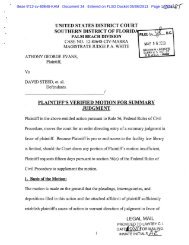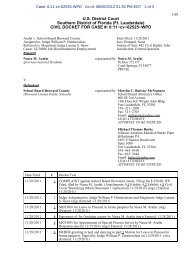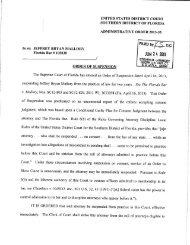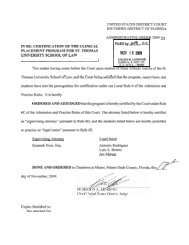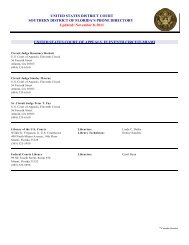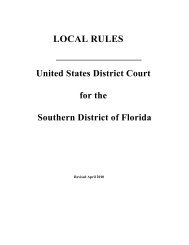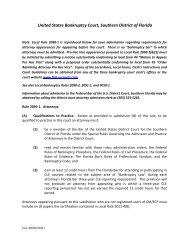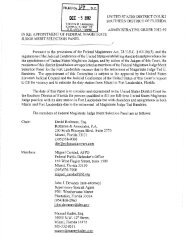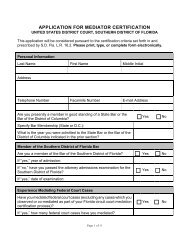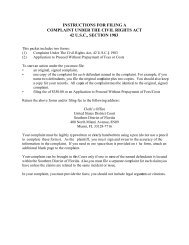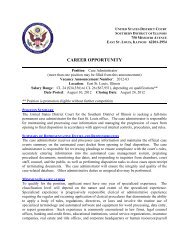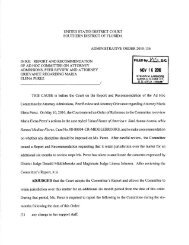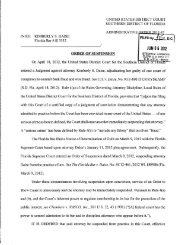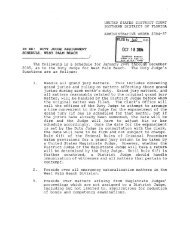JAN j 6 2010 - United States District Court
JAN j 6 2010 - United States District Court
JAN j 6 2010 - United States District Court
Create successful ePaper yourself
Turn your PDF publications into a flip-book with our unique Google optimized e-Paper software.
persons present while the communication was made and, where not apparent,<br />
the relationship of the persons present making the communication;<br />
(2) the date and place of communication;<br />
(3) the general subject matter of the communication.<br />
(iii) Objection on the ground of privilege asserted during a deposition<br />
may be amplified by the objecting party subsequent to the objection.<br />
(c) After a claim of privilege has been asserted, the attorney seeking<br />
disclosure shall have reasonable latitude during the deposition to<br />
question the witness to establish other relevant information concerning<br />
the assertion of the privilege, unless divulgence of such information<br />
would cause disclosure of privileged information, including:<br />
(i) the applicability of the particular privilege being asserted,<br />
(ii) circumstances which may constitute an exception to the assertion of<br />
the privilege,<br />
(iii) circumstances which may result in the privilege having been waived,<br />
and<br />
(iv) circumstances which may overcome a claim of qualified privilege.<br />
B. Invocation of Privilege in Other Discovery. Where a claim of<br />
privilege is asserted in responding or objecting to other discovery<br />
devices, including interrogatories, requests for production and requests<br />
for admissions, and information is not provided on the basis of such<br />
assertion, the ground rules set forth above shall also apply. See Local<br />
Rule 26.l.G.3(g) (3) . The attorney seeking disclosure of the information<br />
withheld may, for the purpose of determining whether to move to compel<br />
disclosure, serve interrogatories or notice the depositions of<br />
appropriate witnesses to establish other relevant information concerning<br />
the assertion of the privilege, including (a) the applicability of the<br />
privilege being asserted, (b) circumstances which may constitute an<br />
exception to the assertion of the privilege, (c) circumstances which may<br />
result in the privilege having been waived, and (d) circumstances which<br />
may overcome a claim of qualified privilege.<br />
C. Exception for Fifth Amendment Privileges. Nothing in this section is<br />
intended to urge or suggest that a party or witness should provide<br />
information that might waive the constitutional privilege against<br />
self-incrimination. Failure to follow the procedures set forth in this<br />
section shall not be deemed to effect a waiver of any such privilege.<br />
VI. MOTIONS TO COMPEL OR FOR A PROTECTIVE ORDER<br />
A. Reference to Local Rules 26.1-^Hlhl and 26.1-^Iil. The procedures and<br />
guidelines governing the filing of motions to compel or for protective<br />
order are set forth in Local Rule 26.1. Prior to filing such a motion,<br />
counsel is required to confer with opposing counsel and both must make a<br />
good faith effort to resolve the dispute by agreement. If no conference<br />
100



